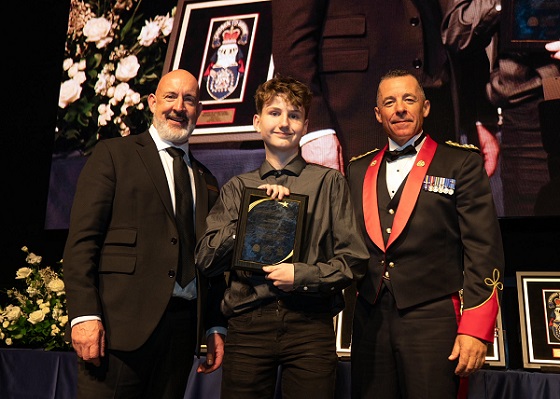Education
Schools shouldn’t sacrifice student performance to vague notions of ‘equity’

From the Fraser Institute
According to a new study published by the Fraser Institute, if Canada wants to remain competitive with emerging economies around the world, we must increase our math, science and reading scores—and not simply pursue high levels of “equity and inclusion” as the primary goal for our schools.
Indeed, highly equitable and inclusive schools—with declining PISA scores, as is currently the case in Canada—do a disservice to students and society at large.
Why? Because higher test scores translate into greater “knowledge capital”—that is, the full body of knowledge available to an economy—and boost economic growth (and, incidentally, the tax revenues that fund our schools).
Indeed, the goal should be equitable access to a quality education. And the most realistic and meaningful way to measure student progress is through PISA tests, which every three years assess the performance of 15-year-olds worldwide in core subjects of math, science and reading rather than the limited curriculum objectives used in provincial testing, which can only show progress or decline within individual school systems. In today’s world, where competition is truly global, we must know how our students and schools perform compared to their peers in other countries, especially the “Asian Tigers” of Hong Kong, Korea, Singapore and Tiawan whose rapidly growing economies have been driven by rising PISA scores.
Obviously, countries with higher test scores can teach other countries how to improve—although there are limits and some traps here. Attempting to cut and paste Singapore’s or Korea’s much more meritocratic systems of highly competitive student assessment and selection would be impractical and impolitic in Canada. Even so, policymakers should consider reinstating more meaningful meritocratic norms in Canadian schools to encourage and recognize academic achievement. Nothing succeeds like success, except recognized and rewarded success.
Closer to home, other provinces could benefit from considering why Quebec is such a stellar performer in math and why Alberta has the highest overall PISA test score average of all provinces.
But fair warning, recent attempts at school improvement in Canada show that top-down one-size-fits-all changes—including extending compulsory attendance, reducing average class size and tinkering with course content—have had little positive effect on student performance, although they may please teacher unions. If policymakers want to achieve more equitable success for more students, they should introduce more flexibility, school autonomy and choice into our top-heavy centrally regulated school systems. In this respect it may be no accident that the three highest performing, mid-spending provincial K-12 education systems (Alberta, Quebec and Ontario) offer relatively high levels of school choice, although of quite different kinds.
Equity and inclusion are noble goals, but they shouldn’t interfere with student progress. There’s too much at stake, for students and the country.
Author:
Education
Students can’t use AI to cheat on standardized tests

From the Fraser Institute
As the schoolyear winds down, many students across Canada will hand in their final assignments and write their final exams. Cutting corners and outright cheating in school is easier than ever. If you need to write an essay, just plug in the assignment instructions and let artificial intelligence (AI) write it for you.
A recent New York Magazine article provided numerous examples of college students using AI to write formal essays, generate programming code, and even draft personalized notes. Whether you need help creating an outline, finding relevant sources or writing an introduction, AI can do all these things and more.
Many K-12 students also use AI for their assignments. Anyone who is worried about being caught just needs to tell ChatGPT (or whichever AI program they use) to make it look like the essay was written by a high school student.
Catching cheaters is nearly impossible—and it’s getting harder as AI gets increasingly sophisticated. Even so-called AI detectors like Turnitin, which scan essays for patterns that indicate the use of AI, are far from perfect. In other words, there’s no easy or low-cost way to prevent students from using AI on their homework assignments.
Obviously, this is a significant problem. If students use AI to do most of their homework, they aren’t going to learn important academic skills. This does not bode well for their future or the general productivity of our labour force.
Fortunately, there’s one academic measurement tool available that AI cannot interfere with—in-person standardized tests, which are administered to all students in a particular grade at the same time and are assessed by outside evaluators using consistent criteria. They can be grade-level tests or exams that are required for graduation.
For example, Grade 12 students in Alberta must write diploma exams in core subjects such as English language arts, mathematics, social studies and science. These exams are created by the provincial Ministry of Education and are marked centrally by a group of teachers. They count for 30 per cent of a student’s final grade, with the remaining 70 per cent coming from the school-awarded mark.
Because all students must write the same exam and are evaluated according to the same standard, it’s possible to objectively determine whether students have met the appropriate academic outcomes. Importantly, students cannot use AI when writing these exams since all diploma exams are strictly supervised.
Thus, even if some students had, for example, used AI to write their English essays at home, their diploma exam marks will reveal the true level of their writing ability. If there are significant discrepancies between the diploma exam mark and the school-awarded mark, this can indicate where changes need to be made.
Unfortunately, many provinces do not have diploma exams, and this leaves their schools more susceptible to cheating with AI. For example, while British Columbia requires all Grade 12 students to write (but not pass) a literacy assessment, this assessment does not count toward a student’s final grade. Even worse, the assessment is “not based on a particular subject matter or course.” Thus, the B.C. literacy assessment has little value in combating the problem of AI cheating. This puts the burden of catching cheaters entirely on teachers and principals.
To make matters worse, standardized testing is on the decline across the country. Over the last decade in most provinces, standardized tests have been administered at fewer grade levels, given less value by provincial governments, and turned into non-content specific assessments. This is exactly the wrong direction.
If provincial education ministries are serious about maintaining academic standards, they must ensure that students write standardized tests at multiple grade levels and in a variety of subjects. Students need to know that their performance on these tests will impact their final marks and that they only hurt themselves academically if they get AI to do their work for them.
When it comes to AI, we cannot put our heads in the sand. Since AI isn’t going away, it’s important that we assess students with measurement tools where students cannot use AI to cheat.
Instead of moving away from standardized testing, every province should embrace and enhance this important measurement tool. It’s the best way to ensure all students meet basic academic standards.

Michael Zwaagstra
Senior Fellow, Fraser Institute
Red Deer
Red Deer Student honoured with Chief Youth Courage Award

When you meet Brayden Chenier, a Grade 8 student at GH Dawe School, it’s clear why he’s been chosen to represent youth across Alberta. Brayden is the proud recipient of the Integrated School Support Program Provincial (ISSP) Chief Youth Courage Award, presented by the Calgary Police Youth Foundation, in recognition of his resilience, leadership and commitment to his community.
The award celebrates students who demonstrate courage and dedication to becoming a responsible and caring citizen, especially within a diverse school and community, and was presented earlier this spring at the Calgary Police Awards Gala. As part of the honour, Brayden will now serve as a youth ambassador, helping to raise awareness about child and youth crime prevention, education, and intervention programs across the province.
“It’s pretty surreal that I will be all over the province for a year,” said Brayden. “I am looking forward to helping out in the community.”
Brayden has been part of the ISSP program through GH Dawe School since 2023 and has benefited greatly from the support offered.
With the support of the mental health professional, Brayden has been able to successfully navigate a variety of challenges in his life including coming to terms with his disability and navigating a tragic loss in his life.
Born with clubfoot, Brayden has never let his physical disability stand in his way. He is an avid athlete in a number of sports including hockey, basketball, golf, track, volleyball and soccer. His goal is working towards becoming an athlete in the Paralympics.
Brayden was nominated by GH Dawe School Counsellor Amy Johansson, who described him as a compassionate, kind, hardworking, and honest person who is driven and motivated to be his very best at all that he attempts.
She added that within the GH Dawe School community, Brayden is a highly respected citizen by all students and staff. “He is highly committed to sports connected to our school, as well as sports outside of our school community. Brayden works diligently at his academics. And is so very helpful and caring, always. Brayden works to overcome a list of things that he will not allow to hold him back.”
GH Dawe School is part of Alberta’s Integrated School Support Program – a child wellness initiative aimed at improving academic performance and the overall well-being of students. The program supports schools like GH Dawe with services to meet the diverse needs of students and families.
As he takes on his role as a provincial ambassador, Brayden continues to be a role model for his peers and a reminder of the power of perseverance and community support.
-

 conflict2 days ago
conflict2 days agoTrump leaves G7 early after urging evacuation of Tehran
-

 Business2 days ago
Business2 days agoTrump family announces Trump Mobile: Made in America, for America
-

 Crime2 days ago
Crime2 days agoUK finally admits clear evidence linking Pakistanis and child grooming gangs
-

 International2 days ago
International2 days agoTrump not seeking ceasefire with Israel, Iran as he rushes back to White House
-

 Business1 day ago
Business1 day agoThe CBC is a government-funded giant no one watches
-

 conflict1 day ago
conflict1 day agoMiddle East clash sends oil prices soaring
-

 conflict1 day ago
conflict1 day agoTrump Threatens Strike on Khamenei as Israel Pounds Iranian Military Command
-

 Business1 day ago
Business1 day agoTrump makes impact on G7 before he makes his exit






